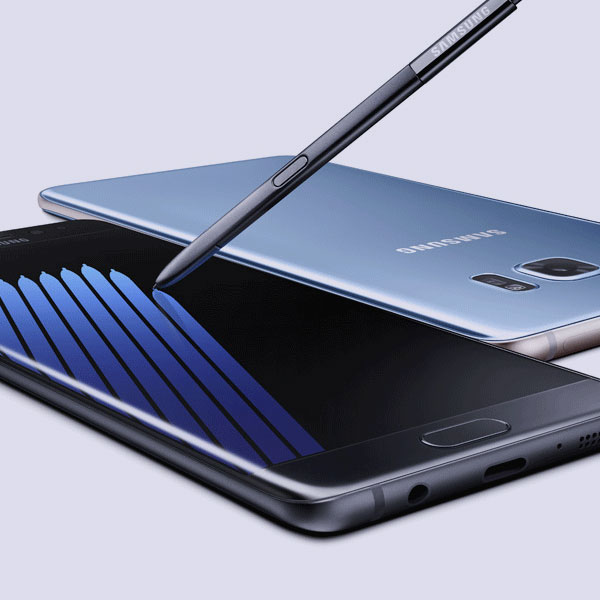
Samsung Electronics’ botched recall, re-release and then permanent cancellation of the Galaxy Note 7 has slashed almost £20 billion from its market value, according to experts.
The firm’s financial future now depends on whether consumers associate the failure of this device with the whole Galaxy brand or indeed the entire Samsung brand.
The Galaxy Note 7 launched in August 2016 with much fanfare. After the first incident of a device self-combusting became public knowledge, it was only five weeks before Samsung felt confident enough to resume sales of the Note 7, with the overheating issue apparently solved.
Experts believe this speed to market is the primary reason for the catastrophe.
Samsung’s engineers had never been able to recreate the fault when testing the Note 7 in their labs. Replacing the battery with a new battery from a different supplier was thought to have resolved the issue but this clearly was not the case.
Being first to market should never have been allowed to override a flaw in the product so serious that it put consumers at risk.
Samsung rushed a new product out to consumers without properly understanding what really caused the fault. The company appears to have been too focused on its competitors (Apple and Google) rather than the fundamentals of product design and operation.
Being first to market should never have been allowed to override a flaw in the product so serious that it put consumers at risk.
Samsung’s external communications were initially poor – the first public statement referred to the need to conduct additional “product quality” tests but made no mention of safety.
In addition, it failed to communicate effectively with the US civil aviation authority when safety concerns first emerged and with network providers such as AT&T, who had agreed a distribution deal with Samsung.
Can Samsung repair the damage to its reputation? I would argue that yes, it can, as long as it now follows best practice.
Refund options for consumers must exceed their expectations – not just quibble-free exchanges for other Samsung products but also full cash refunds, provided quickly and easily, and refunds for phone accessories.
Samsung must investigate all other devices to ensure the same fault is not a possibility in any other product and must offer full support – and extra funding – to its R&D teams as they work through any issues of concern.
Samsung’s communications must now be transparent, pro-active and fully-informed. It must not only put customer safety first but must go above and beyond in terms of compensating customers for the inconvenience caused to them.
The next few months are crucial. Samsung faces a huge task in ensuring that customers’ needs are met and exceeded.
If handled properly, the end result should be that customers maintain their high opinion of Samsung.
In addition, it must work hard to rebuild relationships with network providers and the civil aviation authorities.
The firm has the advantage of being pioneering in its use of technology and of having built a reputation for excellence over many years across its product range. Samsung can survive, but it must not take its customers for granted again.